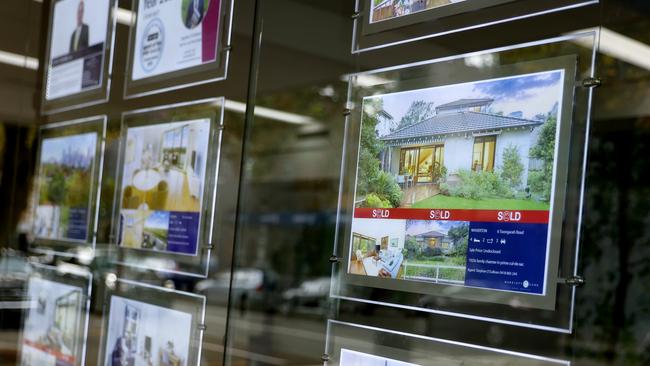Wages growth or housing policy pitched at undecideds

Both Labor’s wages growth policy and the Coalition’s housing package have emerged late in the campaign. About three million people have already cast their vote, but by definition the undecided voters are still to be swayed.
Anthony Albanese’s push for a 5.1 per cent wage rise, clunky as it was in delivery, comes just as the hit to the hip pocket is felt.
When pushed, the Labor leader said he was referring to those on minimum wages (fewer than 200,000 people), but there was enough muddiness left in his message to create alarm. Would this wage increase be extended to workers on the award (as the Fair Work Commission decision to increase the minimum wage normally works)?
If applied across the award system, covering about 2.6 million workers, it does risk an inflationary spiral, as many in business have argued. There is scant evidence of productivity matching the proposed wages increase.
Yet around dinner tables, there is a queasiness among the “haves” that did better from a rise in asset values during the pandemic.
And there is a queasiness that the argument that “all the dividends from corporate profits find their way into the super of workers” is also insincere because of the relative benefits of those who contribute more to super.
It is true that in the 1983 Accord between Labor and the unions, Bob Hawke and Paul Keating got unions to moderate their demands for wage rises, in return for a social wage including Medicare and later the compulsory superannuation system. But productivity growth from a reform agenda was also at the heart of the Accord.
Today there is a growing view in Labor and beyond that record low unemployment no longer begets labour shortages that begets wage rises. Instead, something needs to intervene to kick start wages growth at the bottom, because otherwise it will not happen.
And if big business is up in arms about it and if the PM claims that small businesses will go under and unemployment will rise, well perhaps everyone should have thought about that when big banks and miners were making billions through Covid.
To many voters, the optics of all this are not good. What is more, the economic reform agenda is missing from both the Coalition and Labor camp.
The Coalition’s housing policy allows Scott Morrison to regain momentum after his last-minute “I can change” outburst. Regardless of polling and focus groups, the advice to the PM on this was wrong. Given the importance of Morrison’s pitch to be strong and manage the economy, the bulldozer mea culpa looked like an act of self-harm.
That said, the PM did a pretty good job of delivering a real Scott Morrison at the party launch and the rabbit in the hat – the new super homebuyer policy – is clever politics.
The policy neatly wedges Labor with its close links to industry super funds, which are naturally squealing. Remember in 2020, there were a number of government MPs unhappy about the legislated rise in compulsory superannuation towards its target 12 per cent.
The policy offers first-home buyers the chance to use up to 40 per cent of their super to a cap of $50,000 towards a home.
Critics are throwing everything at the idea including arguments that contradict each other.
First, super is sacrosanct and is for retirement living only and this is the thin end of the wedge. Yet for young Australians looking at the security of older people who do own their own home, this policy offers another way of achieving security in retirement.
Second, the critics claim it will make the housing market go up, jumping on Superannuation Minister Jane Hume’s comment that it would bring a bump in prices as housing supply is reduced.
Other critics argue interest rates are going up and it is the wrong time to be pushing young people into a market that is coming off highs.
Morrison argues that he is freeing up supply with the downsizing policy for older people to move into smaller homes. In any case, most in property say the supply issue is a far bigger problem and first-homebuyer policies merely tinker around the edges.
Since the super homebuyer announcement, commentators have been running the ruler over exactly who this policy might help. The answer is those who have had a few years to build up their super, in their early thirties. It may not be for the HECS-laden graduate, but it is something for them to aspire to. There was a reason why Morrison had so many young-looking liberals in the front rows of the party launch in Brisbane on Sunday.
Both Labor’s push for a wage increase to match rising inflation and the Coalition’s super homebuyer policy encourage much broader debates on cost of living and housing affordability. Make no mistake, both are intended to do so.



Only on Sunday when Australia wakes up to a new government will it be clear how instrumental the two policies that have at last differentiated a Morrison government from an Albanese government have been in the closing days of the campaign.